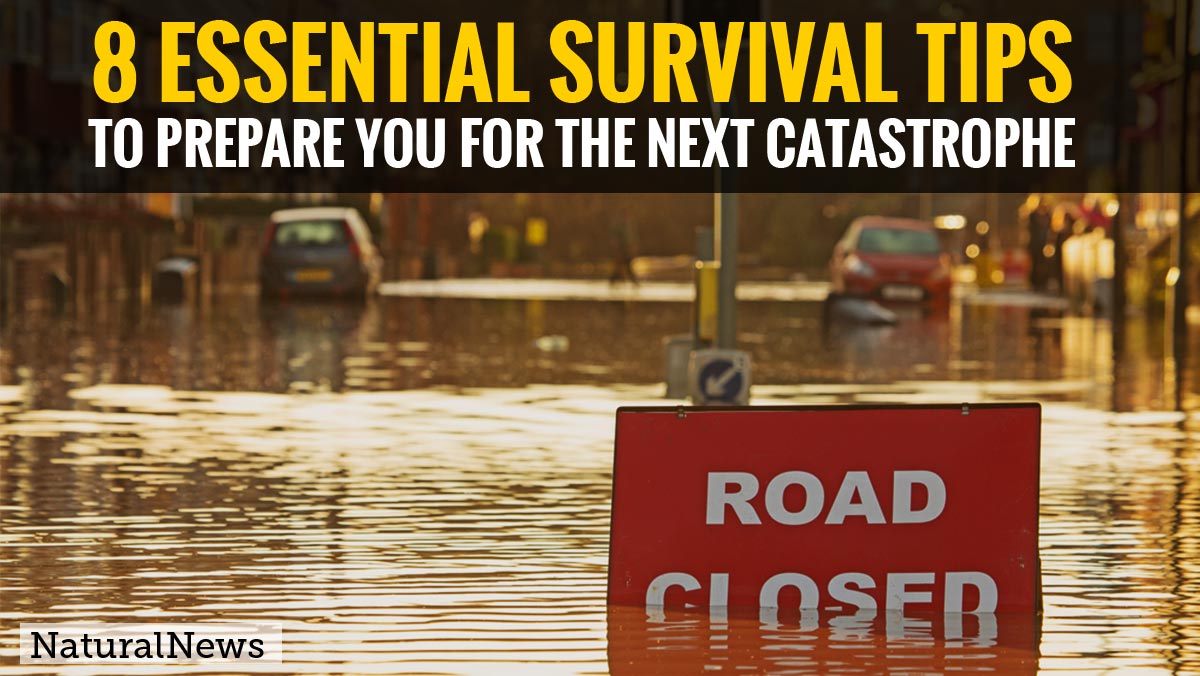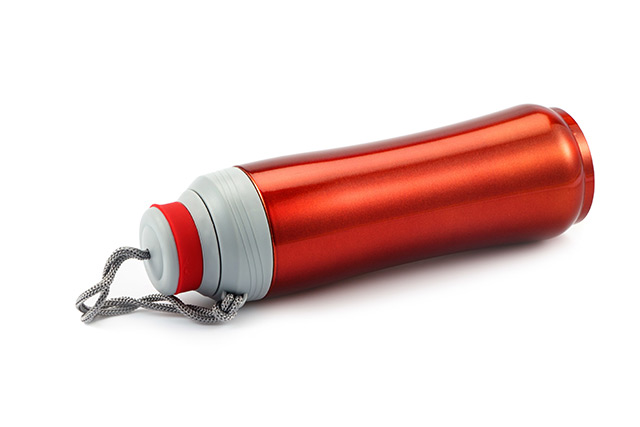You need to know these 8 essential survival tips to prepare you for the next catastrophe
09/09/2017 / By Kristine Payne

Hurricane Harvey is a natural disaster that has rocked this nation to its core. The devastation left in its wake has placed hundreds of thousands of people in uncertain and terrifying situations. Unfortunately, Harvey is far from being the last major natural disaster to assault our country. Many more will come, and there’s no telling if they’ll be just as bad or even worse than Harvey. Before that happens, be sure that you won’t be caught with your pants around your ankles, like how many people were when Harvey swept through our Gulf Coast region. Here’s some tips for how you should prepare for the next catastrophe:
- Ready disaster preparedness kits – Disaster can hit at any given moment, so be sure to have an emergency kit with all the essentials at the ready. Fill this kit with food, water, medical supplies, lights, personal hygiene items, a means of communication (radio and/or cellphone), and personal documents. Place everything in a sturdy, easy-to-carry bag and situate that bag in an accessible area. Furthermore, be sure to keep at least three disaster preparedness kits: one for your home, one for your workplace, and one for your car. You could be at any of these places when something bad goes down. (Related: Hurricane Harvey proves again why it is foolish if you don’t become a prepper.)
- Plan for your area – Knowing your environment will give you a good idea of what you could be facing. Whether your hometown is prone to flooding or earthquakes, being aware of it will help you plan better since no state or city is truly the same as another. This will also help you become familiar with your area’s shelter locations and evacuation routes if ever you’re forced out of your home.
- Plan for your family, pets included – Even if you’re at peak physical condition, other members of your family might not be. Children, senior citizens, people with disabilities, and pets should all be taken into consideration when you make emergency preparations and plans. If a member of your family needs special medications, then be sure to have them on hand. For pets, you can opt to have them microchipped to make it easier for them to be returned to you if you ever become separated.
- Learn basic emergency skills – What would you do if you’re bleeding from a deep wound and first responders are nowhere near you? Having a working knowledge of how to treat bleeding will make a huge difference in situations like these. Not just bleeding, though: being familiar with how to perform CPR, how to treat a burn, and even how to use a fire extinguisher can and will come in handy one day.
- Set aside some cash – Your debit or credit card won’t be of much use if there’s no electricity or electronic systems online. That’s why you should always put away a few hundred dollars just in case. Small denominations are ideal since a $100 bill is going to be harder to break.
- Have an out-of-area emergency contact – Should you ever need to leave your hometown, it definitely helps to know someone outside of it whom you can always rely on for shelter or supplies.
- Keep your car in top condition – If you have a car, don’t forget to maintain it. A well-maintained car with a full tank of gas should always figure into your emergency plans. You never know when you need to hit the road or when your vehicle will be all you’ll have left.
- Practice your plan – Having an emergency plan is one thing, carrying it out is another. Make it a point to practice your emergency plan every few months to see if there are still any kinks that need to be ironed out.

As with many things in life, a little preparation goes a long way. That’s why the Health Ranger Store is proud to offer Survival Preparedness Gear to help you get through just about anything. From multi-purpose tools to pandemic protection kits to the space-saving Garden Tower, the Health Ranger Store has got it all and so much more. Don’t let the next catastrophe catch you by surprise and hold you down. Stock up on the equipment and food you need to protect and support you and your family.
Sources include:
AlwaysWellWithin.com
HuffingtonPost.com
NurseBuff.com
Weather.com
Tagged Under: disaster preparedness, emergency preparedness, Health Ranger Store, Hurricane Harvey, prepper resource, prepping, survival



















